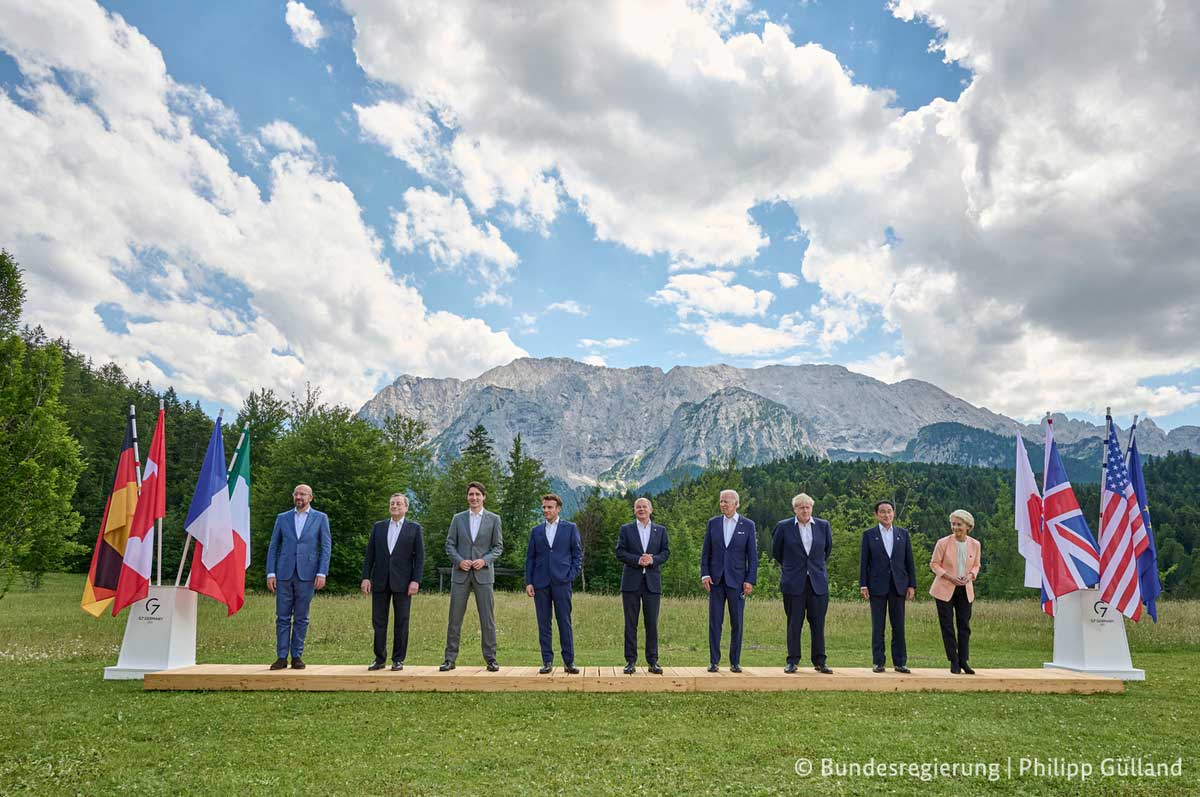LATEST INSIGHTS
Your Present Location: LATEST INSIGHTSZamir Ahmed Awan: G7's $600 Billion projects, no threat to Chinese BRI
Source: Modern Diplomacy Published: 2022-07-01

Although G7 launches a $600B global infrastructure project to counter China, but, what are the ground realities? Can G7 counter China? Do they have enough money or resources to implement it? Is there any sincerity among G7 countries to invest such a huge amount, while they are also a victim of a global economic meltdown?
Group of Seven leaders pledged on Sunday to raise $600 billion in private and public funds over five years to finance needed infrastructure in developing countries and counter China’s older, multitrillion-dollar Belt and Road project.
U.S. President Joe Biden and other G7 leaders relaunched the newly renamed “Partnership for Global Infrastructure and Investment, (PGII)” at their annual gathering being held this year at Schloss Elmau in southern Germany.
Biden said the United States would mobilize $200 billion in grants, federal funds, and private investment over five years to support projects in low- and middle-income countries that help tackle climate change as well as improve global health, gender equity, and digital infrastructure. The rest of the US Dollars 400 Billion will be shared by other G7 nations. It is very much clear that this money is not aid, nor charity, but, an investment, which will generate profit and will be shared by investors accordingly.
The US has experience with the “Marshal Program” launched just after WWII in Western Europe. The aim was to assist Western Europe to rebuild its war-damaged infrastructure and revive its economy. The US was a major beneficiary of the Marshal Program while Western Europe also gained a lot.
But, this time, the objective is very much different – to counter China or to counter the Chinese mega initiative of Belt and Road. China’s belt and Road Initiative (BRI) was launched in 2013, with trillions of dollars, and got recognition from around 150 nations, countries, and organizations. Many countries are the beneficiaries of BRI already and the fruits of it are being enjoyed in many countries. BRI has no political motives and is open to all, any nation, country, or organization can be a beneficiary of it. Contrarily, G7’s program is politicized and focused to counter China only.
Does the G7 have sufficient funds? Can they spare such funds when their own economies are in trouble? Unlike China’s huge BRI initiative, the proposed G7 funding would come largely from private investors and is therefore not guaranteed. Do G7 countries have experience with infrastructure developments like China? Do they have capacity? If their own infrastructure is lacking behind, how can they assist other nations to develop? China upgraded its own infrastructure first and demonstrated its capability, after getting recognition, it assisted other nations in development. China is much more advance in infrastructure as compared to the rest of the world. Can all the G7 nations be willing to counter China? Some of the G7 members are close partners with China in trade, economy, and S&T. Some of the G7 depend on Chinese investment and or at least beneficiary of it. Few are dependent trading partners with China. Are all G7 nations on the same page politically? Are they willing to face the backfire or repercussions?
Overall Europe is a close partner with China in trade, investment, and development. They cannot sacrifice their national interests. Politically, they are closer to China.
Chinese foreign ministry spokesman Zhao Lijian defended the track record of BRI when asked for comment at a daily briefing in Beijing on Monday. “China continues to welcome all initiatives to promote global infrastructure development,” Zhao said of the G7’s $600 billion plan. “We believe that there is no question that various related initiatives will replace each other. We are opposed to pushing forward geopolitical calculations under the pretext of infrastructure construction or smearing the Belt and Road Initiative.”
In fact, China is an open country and does not consider it a threat to its mega initiative of BRI. It is good to have multiple approaches to development, developing nations should have more options and opportunities. China strongly believes in globalization, multi-laterals, and open, free & fair competition. It trusts in its capacity, capability, experience, and financial strengths. Its approach of win-win cooperation got global recognition and established confidence, so there is no need of panicking. Rightly, China welcomes.
It is believed that more projects and initiatives are required for global developments. Advanced and developed nations should come up with more options. Developing nations warmly welcome, if more options and choices are available. A healthy completion is always a good phenomenon. It will be much more appreciated if such projects are purely for development, no politics at all. The focus should be on the welfare of humankind and not on gaining hegemony or supremacy.
Key Words: China,G7,infrastructure,Zamir Ahmed Awan























































































 京公网安备 11010802037854号
京公网安备 11010802037854号





